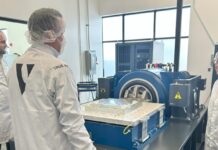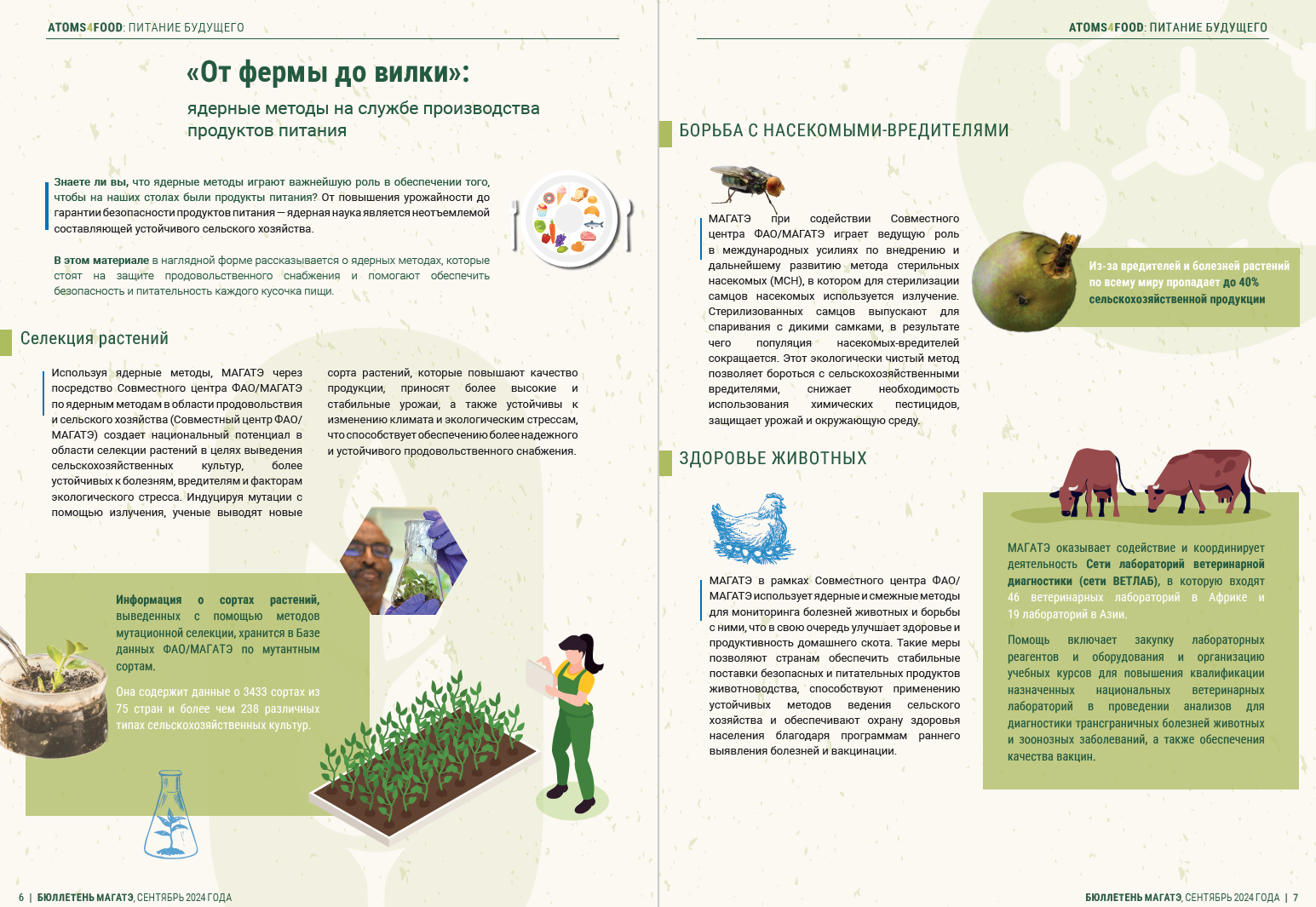The Role of Nuclear Science in Modern Agriculture: Ensuring Food Safety and Sustainability
Did you know that nuclear technologies play a crucial role in ensuring the food that reaches our tables is both safe and nutritious? These advanced methods are key to sustainable agriculture, boosting crop yields and guaranteeing food safety.
In this article, we delve into how nuclear techniques safeguard our food supply, enhancing the quality and safety of each bite we consume.
Enhancing Crop Yields Using Nuclear Technology
One of the foremost benefits of nuclear science in agriculture is its ability to enhance crop yields. Through a process called mutation breeding, scientists can develop new plant varieties that are more resilient to harsh conditions and diseases. This involves exposing seeds to radiation, which induces mutations. The resulting plants can then be selected for desirable traits, such as increased resistance to pests or improved nutritional content.
Mutation breeding has already led to the development of numerous high-yielding and disease-resistant crop varieties. For example, in Bangladesh, rice varieties developed using this technique have significantly increased the country’s rice production. This not only helps in meeting the food demands of a growing population but also contributes to economic stability by reducing the reliance on food imports.
Ensuring Food Safety through Nuclear Methods
Beyond improving crop yields, nuclear techniques also play a pivotal role in ensuring food safety. One of the most widely adopted methods is food irradiation. This involves exposing food products to ionizing radiation, which helps eliminate pathogens and pests, thereby extending shelf life and reducing the risk of foodborne illnesses.
Food irradiation is a safe and effective way to ensure that food products are free from harmful microorganisms. It is endorsed by numerous global health organizations, including the World Health Organization (WHO) and the Food and Agriculture Organization (FAO). By reducing the need for chemical preservatives and additives, irradiation also supports the production of healthier food options.
Nutrient Preservation and Quality Enhancement
Another significant advantage of using nuclear technology in food production is the preservation of nutrients and enhancement of food quality. Techniques such as irradiation not only help in maintaining the nutritional value of food by minimizing nutrient loss during storage but also improve the overall quality by preserving freshness and flavor.
For instance, irradiation can prevent the sprouting of vegetables like potatoes and onions, maintaining their quality for longer periods. Similarly, it can delay ripening in fruits, allowing them to be transported over long distances without compromising their taste and nutritional content. This is particularly beneficial for countries that rely on exporting fresh produce.
Contribution to Sustainable Agriculture
Nuclear science contributes to sustainable agricultural practices in several ways. By developing crop varieties that require fewer resources such as water and fertilizers, nuclear techniques help reduce the environmental impact of farming. This is crucial in the face of climate change, where water scarcity and soil degradation pose significant challenges to food production.
Moreover, nuclear methods support integrated pest management strategies that minimize the use of chemical pesticides. By using techniques like the Sterile Insect Technique (SIT), which involves releasing sterile insects to control pest populations, farmers can reduce their reliance on harmful chemicals, promoting a healthier ecosystem.
Global Acceptance and Implementation
The implementation of nuclear techniques in agriculture is supported by international organizations such as the International Atomic Energy Agency (IAEA). These organizations provide technical assistance and training to countries looking to adopt nuclear technologies in their agricultural practices.
For instance, the IAEA, in collaboration with the FAO, has been instrumental in helping countries improve their agricultural output and food safety standards through nuclear science. By facilitating knowledge exchange and providing access to advanced technologies, these organizations ensure that the benefits of nuclear techniques are accessible to developing countries.
Future Prospects and Innovations
As the global population continues to rise, the demand for food will only increase. Nuclear science offers promising solutions to meet this demand sustainably. Ongoing research and innovation in this field are expected to yield even more efficient and effective methods for enhancing food security.
For example, advancements in radiation technology could lead to more precise and targeted applications in agriculture, minimizing any potential risks and maximizing benefits. Additionally, the integration of nuclear techniques with other emerging technologies, such as biotechnology and precision agriculture, holds great potential for revolutionizing food production systems.
Conclusion
Nuclear science plays a vital role in modern agriculture, providing solutions that enhance crop yields, ensure food safety, and promote sustainable practices. By leveraging these advanced techniques, we can address the challenges of food security and meet the nutritional needs of a growing global population.
For more information on how nuclear methods are transforming agriculture, you can explore resources provided by the International Atomic Energy Agency (IAEA) here.
For more Information, Refer to this article.


































